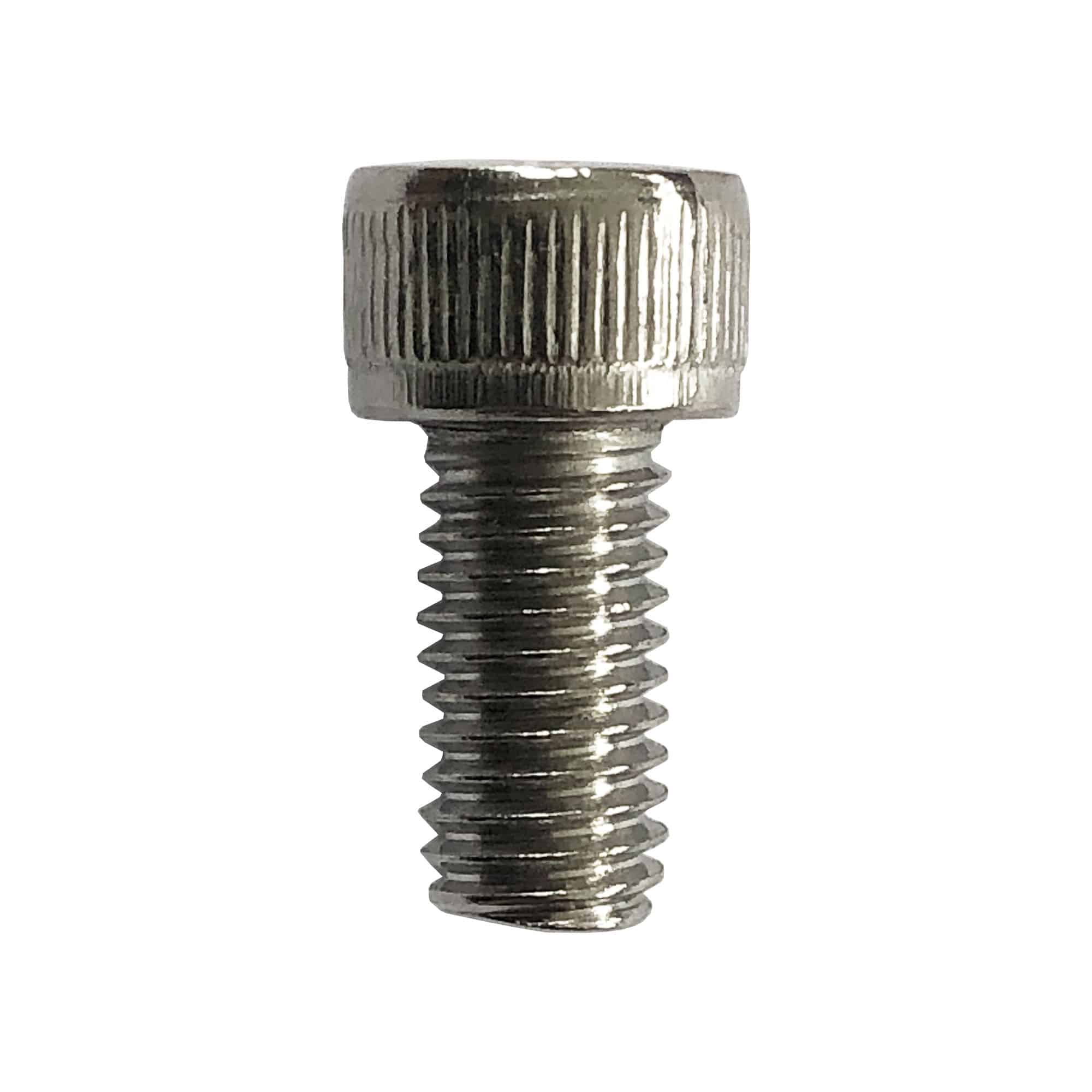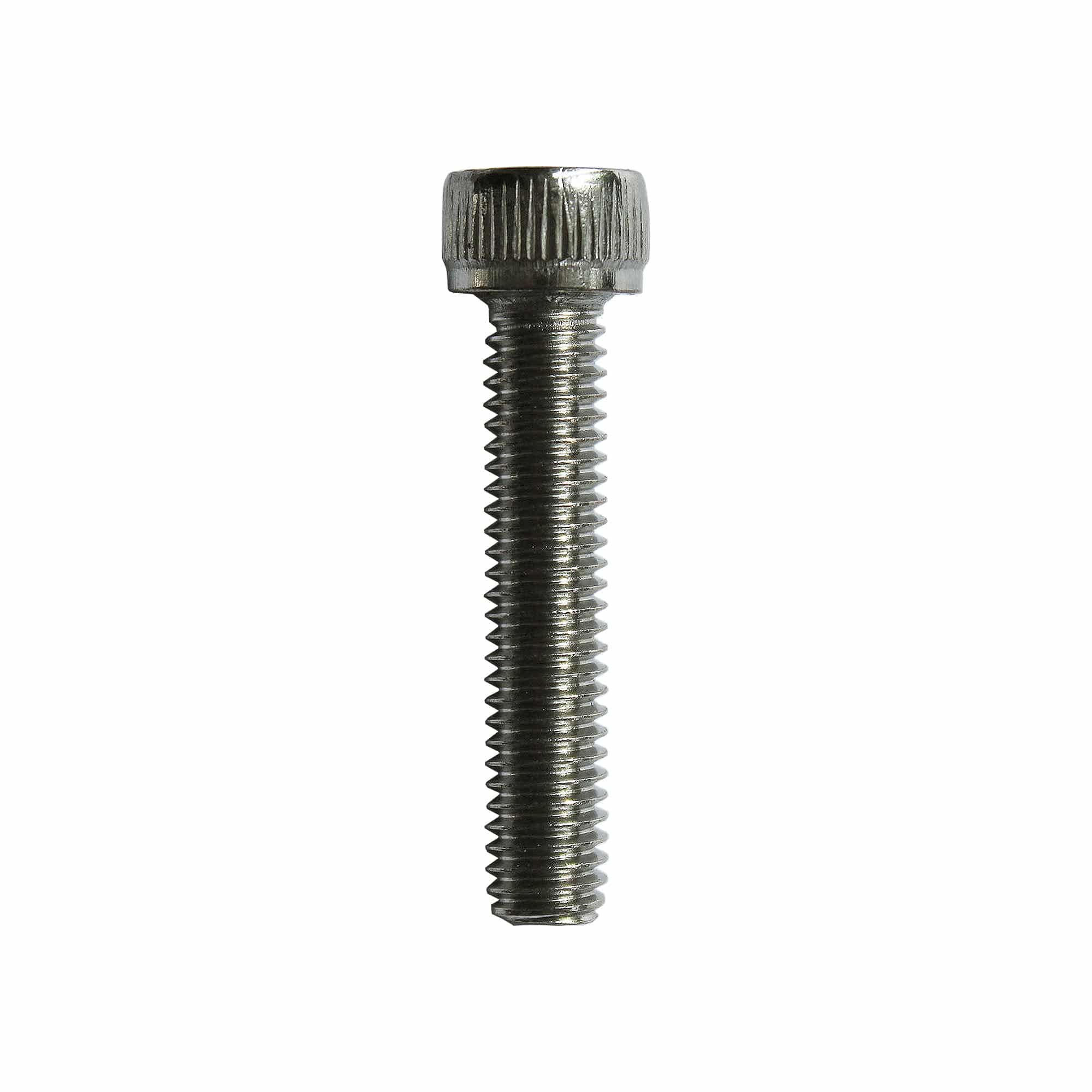- Massive Range
- FREE UK Delivery
- Rapid Dispatch
- Massive Range
- FREE UK Delivery
- Rapid Dispatch
- Massive Range
- FREE UK Delivery
- Rapid Dispatch
Menu
£1.99 – £4.49 inc VAT

Have you heard about the M1.6 A2 Grade Allen Key Cap Socket Screw from Speciality Metals? This is a game changer! Not only is it durable and versatile, but its low maintenance and hygienic properties make it perfect for a variety of applications. Plus, with its corrosion resistant properties and secure design, you can rest easy knowing your project is in good hands. So go ahead and give it a try – we guarantee you won’t be disappointed!
✔ Always In Stock
✔ Dispatched Within 24 Hours
✔ UK Delivery Included
✔ 30 Day Returns Accepted
Top quality stainless allen key socket screw bolts supplied straight from Warrington, UK.
As a part of our extensive range of fasteners, Speciality Metals stocks a variety of both standard fasteners and specialist fasteners, including both steel and stainless steel fasteners, nuts and bolts, screws and steel washers.
We ensure that we offer a comprehensive range which meets the needs and requirements of each and every one of our customers, whether you are looking for standard fasteners or something a little more unusual.
Speciality Metals’ M1.6 A2 Grade Allen Key Cap Socket Screw is a highly durable and versatile screw that is popular among professionals. These screws are corrosion-resistant, secure, and have impressive hygienic properties thanks to their 304 grade material. Low maintenance makes it easy to work with, making it ideal for projects that require long-lasting screws. This screw can withstand even harsh environments, whether you’re working in a commercial kitchen, hospital or outdoor setting. Any project that requires durability and versatility will benefit from the M1.6 A2 Grade Allen Key Cap Socket Screw due to its high-quality build and reliable performance.
We also offer washers that will compliment our range of screws and bolts perfectly.
Furthermore we stock a vast range of plain wire mesh and perforated metal options that compliment our sheet metal range perfectly.
Over 50,000 customers of Specialty Metals are provided with fast, friendly customer service every year. We’re the place to try when you need metal of any shape and size. We’re based in Warrington, UK. We pride ourselves on our rapid turnaround and a large range of options.
Yes, stainless steel Allen key cap screws can be used with plastic materials, but there are some considerations to keep in mind.
Thread Engagement: Plastic materials are generally softer and less robust than metals. Therefore, when using stainless steel Allen key cap screws with plastic, be cautious about the amount of thread engagement. Ensure that the threaded portion of the screw does not fully penetrate the plastic, as excessive thread engagement could lead to cracking or damaging the plastic material.
Pre-Drilling: Depending on the type of plastic and its thickness, it might be a good idea to pre-drill pilot holes to guide the screws into the plastic material. This can help prevent the plastic from splitting or cracking when the screws are tightened.
Thread Forming Screws: Instead of traditional threaded screws, consider using thread forming screws specifically designed for plastic materials. These screws have a unique thread design that creates threads in the plastic material as they are inserted, reducing the risk of damaging the plastic.
Material Compatibility: Ensure that the stainless steel used for the screws is compatible with the plastic material you’re using. Some plastics can be sensitive to certain types of metals, so it’s important to avoid combinations that might result in corrosion or other adverse reactions.
Tightening Torque: When tightening stainless steel screws into plastic, be cautious about applying excessive torque. Plastic is more prone to deformation under pressure compared to metals. Over-tightening can cause the plastic to crack or deform, compromising the integrity of the connection.
Environmental Factors: Consider the environmental conditions the assembly will be exposed to. Extreme temperatures, UV exposure and moisture can affect the performance of both the stainless steel screws and the plastic material.
The suitability of using stainless steel Allen key cap screws in high-temperature applications depends on the specific type of stainless steel and the temperature range involved. Stainless steel is known for its corrosion resistance, but different grades of stainless steel have varying resistance to high temperatures. Here are some factors to consider:
Stainless Steel Grade: There are various grades of stainless steel available, each with its own properties. Some grades, like austenitic stainless steels (e.g., 304, 316), are commonly used in many applications but may not be suitable for extremely high temperatures. Martensitic or ferritic stainless steels tend to have better heat resistance, making them more appropriate for elevated temperature environments.
Temperature Range: The temperature range of your application is crucial. Stainless steel’s mechanical properties, including its strength and resistance to oxidation, can be significantly affected by high temperatures. Depending on the grade, stainless steel might start experiencing reduced strength, increased susceptibility to oxidation and potential distortion at certain temperatures.
Oxidation and Scaling: At high temperatures, some stainless steel grades can experience oxidation and scaling, which can affect their mechanical properties and appearance. The formation of oxide layers can impact the integrity of the fasteners.
Creep Resistance: Creep is the gradual deformation of a material under prolonged exposure to stress at elevated temperatures. Stainless steel’s resistance to creep varies by grade, and for applications involving sustained high temperatures, choosing a grade with better creep resistance is crucial.
Thermal Expansion: Different materials, including stainless steel and plastics, have varying coefficients of thermal expansion. When used in combination, the differential expansion and contraction rates due to temperature changes can affect the stability of the fastened connection.
Manufacturer’s Specifications: Always refer to the manufacturer’s specifications for the stainless steel screws you intend to use. Manufacturers often provide information about the temperature limits and other relevant considerations for their products.
To determine the appropriate torque for installing stainless steel Allen key cap screws, you should consider the following steps:
Consult Manufacturer Guidelines: The manufacturer of the screws will often provide torque recommendations in their product documentation. These recommendations are based on the specific characteristics of the screws they produce.
Use a Torque Chart: Many screw manufacturers provide torque charts that list recommended torque values based on screw size and material. These charts can be a useful reference when determining the appropriate torque.
Material Compatibility: Consider the material you’re fastening into. Different materials have different hardness and characteristics, which can affect the required torque. For example, tapping threads into harder materials might require higher torque values.
Pre-Drilling and Thread Engagement: If you’ve pre-drilled pilot holes or tapped threads, the torque required can be influenced. Make sure to account for any changes in torque due to these factors.
Thread Lubrication: The use of lubricants on the screw threads can affect the friction between the screw and the material, potentially requiring adjustments to the torque setting.
Testing: Before fully assembling a critical application, it’s a good practice to test the torque on a sample or a non-critical piece to ensure that the torque value results in the desired tightness without damaging the materials.
Calibration: Ensure that the torque wrench you’re using is properly calibrated. A calibrated torque wrench will provide accurate torque values.
Uniform Tightening: When tightening multiple screws in an assembly, ensure that the torque is applied uniformly across all screws to maintain balance and even pressure.
Remember that over-tightening can damage threads, strip screw heads, or deform the materials being fastened. Under-tightening can result in loose connections. Following manufacturer guidelines and torque charts specific to the screws you’re using is crucial for achieving the correct balance.
Yes, stainless steel Allen key cap screws can be used with locking mechanisms to help prevent loosening due to vibration or other external forces. Locking mechanisms are designed to provide additional resistance against unintentional loosening of fasteners over time.
Nylon Patch or Pellet: Some cap screws have a nylon patch or pellet applied to the threads. When the screw is tightened, the nylon material embeds into the threads, creating friction that helps prevent the screw from loosening. This is a common and effective method for locking screws in place.
Thread Locker Adhesive: Thread locker adhesives, such as Loctite, are applied to the threads of the screw before installation. These adhesives cure and create a bond that prevents the screw from vibrating loose. Thread locker adhesives are available in various strengths to suit different applications.
Split Washers: Split lock washers, also known as spring washers, are placed under the screw head or nut. These washers compress as the screw is tightened, creating tension that resists loosening. However, their effectiveness as a locking mechanism can be limited compared to other methods.
Lock Washers: Lock washers are designed with serrations that grip the mating surface and the screw head or nut. They can help prevent rotational movement and loosening. Like split washers, their effectiveness varies based on the application.
Safety Wire: In certain applications, safety wire can be used to physically tie the screw or nut to another point in the assembly. This prevents rotational movement and ensures that the fastener remains secure.
Double Nut Arrangement: Placing two nuts on the screw and tightening them against each other can create a locking mechanism. The friction between the nuts helps prevent them from vibrating loose.
Check out our recent article ‘How to Use Allen Key Bolt Cap Screws in Furniture Assembly‘ for a deeper dive into allen key screws. Our goal for our blogs and help guides is to answer as many questions as possible to help to explain the possibilities of mesh to our customers.
We are also very proud of our ever expanding YouTube channel.
Contact us today if you have any questions at all. We are always really keen to help in any way that we can.
We are also very proud of our highly popular eBay store, check us out there too.
Thank you for checking out our product.
£1.99 – £15.99 inc VAT
£1.99 – £10.49 inc VAT

£1.99 – £15.99 inc VAT

£1.99 – £10.49 inc VAT
Speciality Metals
Unit 1, Farrell Street, Warrington,
Cheshire, WA1 2WW, United Kingdom
Quick Links
Payment Options
